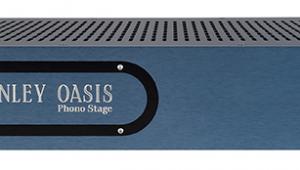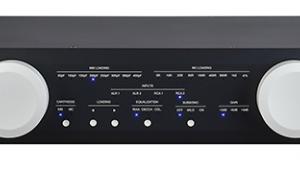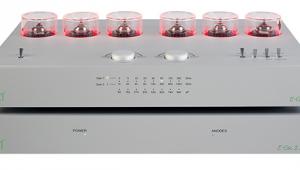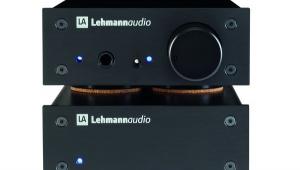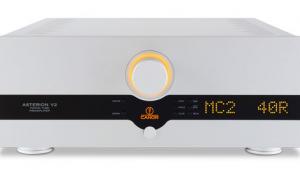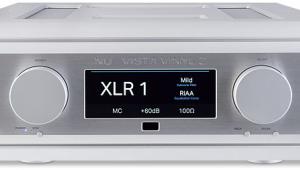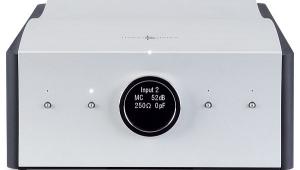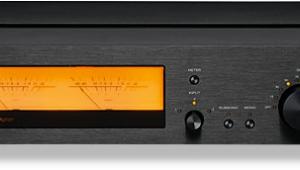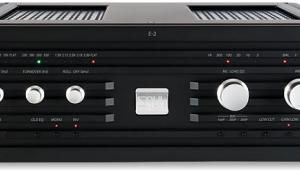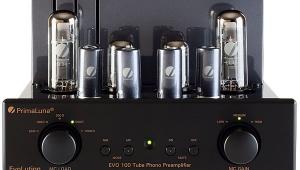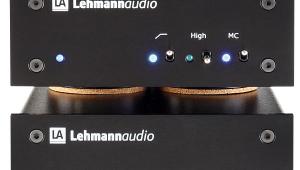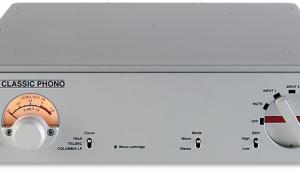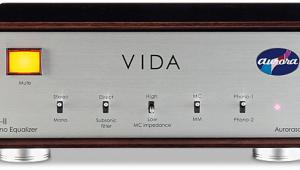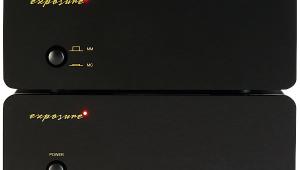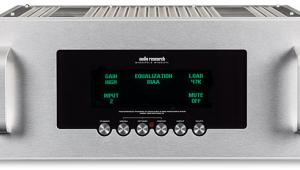Musical Fidelity M3x Vinyl Phono Preamplifier Page 2
![]() Liquid Assets
Liquid Assets
You've already seen my top 20 list of demo LPs, and my remarks about how standard issues are just dandy if audiophile pressings are either not available or cost-prohibitive. And yet… I fell straight into the trap of using a One-Step release for my first burst through the M3x Vinyl. For whatever lockdown mood inspired me, I couldn't resist listening to Patricia Barber's jazzy, atmospheric Café Blue [Impex IMP6035-1], especially for its sense of an intimate space and Mariana Trench bass. In addition to providing a perfect opportunity to gauge the effect of the subsonic filter, it revealed a trait I have associated with Musical Fidelity going all the way back to The Preamp [HFN Nov '82 & Jul '13]. It was as if the spirit of designer Tim de Paravicini hovered over the revived MF brand, for this phono stage has a bottom end to rival even my preferred valve designs.
The vocals oozed presence, and the detail was mesmerising. But this LP was proving problematic because it is a perfect example of a recording (or pressing) that is so good, it makes even average systems sound spectacular. But then that's what audiophile discs are all about, right?
Since I was spinning vinyl at 45rpm, I dug out what is rapidly becoming my second-favourite Bob Dylan LP after Nashville Skyline: the 45rpm, 2LP edition of Love And Theft [Mobile Fidelity MFSL 2-489]. While the appeal of Dylan's voice is always a moot topic, the musicianship is never in question, and the key to the M3x Vinyl's prowess here was the sheer fluidity of the guitar work. The sound of this slithery accompaniment, if there's a Venn diagram for sonic character, was more liquid than silky, and while that sounds as ludicrous and vinous as a 'chocolate midband', it's the only way I can describe it.
Central Powers
While I was tempted to binge on my fave Dobro and pedal steel performances, this phono stage begging to be fed the Dillards and the Burritos, I also needed to hear what it did with vinyl of a quality less than the stellar pressings of Barber and Dylan. So I went all the way to the other extreme, and the box set of The Beatles' singles [Apple 02547 26171]. This 2019 reissue, which I didn't need but splashed out for anyway as a Fab Four devotee, contains all of their 45s, and I was reminded of what a pain in the butt singles can be, having to get up every 2m 30s to flip 'em over.
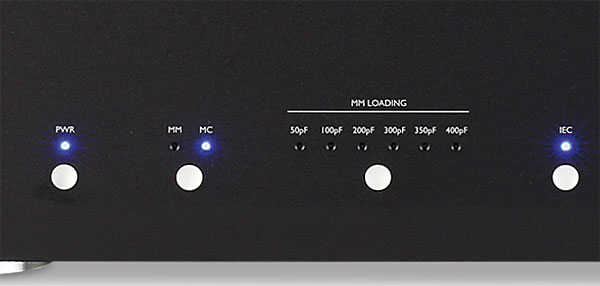
What this flow of singles revealed were two things. The first was that Musical Fidelity could have included a mono button on the M3x Vinyl, which would have enhanced its usefulness for those who listen to much-loved material from the 1950s and early 1960s. The second (I know – in contradiction to the first) was that the unit, despite the lack of said setting, creates a solid, central image, even without switching one's main preamplifier to mono or opting for a mono cartridge.
Crisp 'N' Dry
As hoped for, the singles had charm and sparkle, again attesting to a sonic heritage that goes all the way back to vintage Musical Fidelity designs. The marque has always managed to provide a crisp, if slightly dry treble without inducing any fatigue, and it was this ability, for example, that made the company's A1 integrated amp a smash hit. Still with mono, of a completely different recording regimen, I stayed in the same period but switched to the broadcast performances on the album Live At The BBC [Apple 3758940].
This triple LP dispensed countless moments of a revelatory nature, and one could actually detect subtle changes from programme to programme, but the tracks do not run in chronological order, so one should listen with sleeve to hand. When you get to the numbers from 1965, the bottom end enjoys more substance than the earlier tracks, which suggests – and this is a long shot – that respect for The Beatles grew exponentially after 1963 and the BBC responded with a touch more care. Given that far too many of their performances haven't survived, I doubt it. But I digress.
A surprise standout, as it's from 1963, was 'Honey Don't' on the last side of the triple set. George's twangy guitar playing exhibited superlative clarity, the bass had more weight and the vocals retained The Fabs' youthful character – and, yes, we are talking about the most familiar voices in the history of popular music. As this is entirely a mono experience, though, I was letting down the side so I slipped another stereo title on the turntable.
Special Delivery
Like Love And Theft, The Doors' Morrison Hotel [anniversary box set; Rhino R2 627602] is an LP that seems to be increasing in stature. Most fans loved it a half-century ago, but it was overshadowed by the band's other works. I knew I was enjoying an especially noteworthy session from the opening of the track 'Roadhouse Blues' – again thanks to a familiar voice. Jim Morrison's singing possesses a graininess, a slight whine, and a deadpan quality, all delivered through the M3x Vinyl, even with the least expensive of the MM cartridges. With the MCs? It sang.
Hi-Fi News Verdict
There are too many fine phono stages out there for a clear winner to emerge in any price category. What distinguishes the M3x Vinyl from the rest are a sleek package, comprehensive cartridge matching, excellent build quality and – by virtue of its size and look – a presence that will endear it to those who don't want to fiddle about with tiny DIP switches, or non-standard-sized cases. Satisfaction? Guaranteed.

